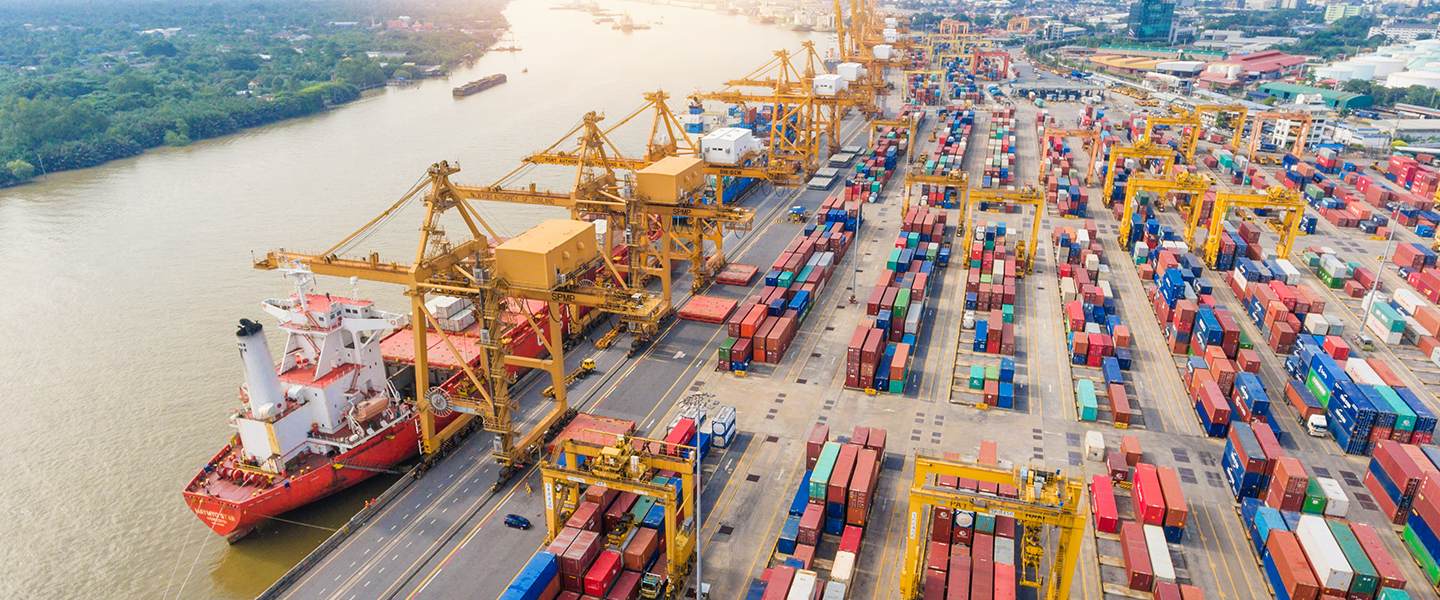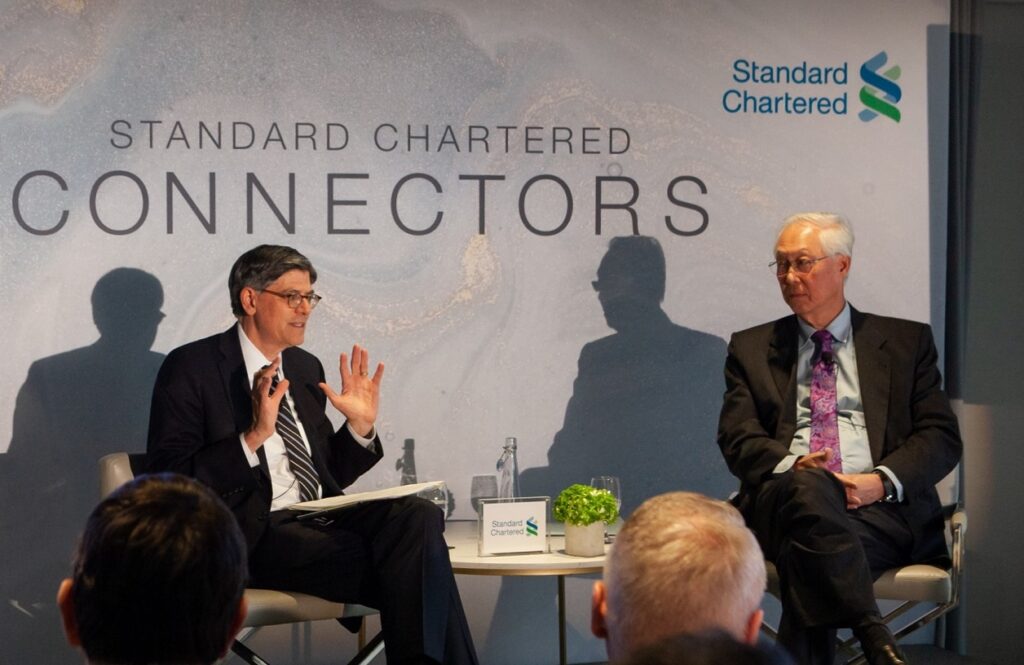US vs China: a zero-sum game?


Given the US-China trade tensions, questions about how the situation will develop and its effects on global economics and trade are getting more urgent. There are no easy answers in a situation where US-China economic ties are mixed inextricably with issues of strategic competition, technological supremacy and national security – the result of what Mr Goh Chok Tong, Emeritus Senior Minister of the Republic of Singapore called “a tectonic shift in geopolitics.”
When elephants fight, it is the grass below that suffers
Speaking at the first Standard Chartered Connectors event in New York, one thread addressed by Mr Goh was that the bilateral dispute has global consequences, citing an African proverb, “When elephants fight, it is the grass below that suffers.”
Focusing only on the economic implications, Standard Chartered research has shown that if the US were to levy 25 per cent tariffs on all imports from China, it would deduct 1.2 percentage points from China’s estimated GDP growth of 6-6.5 per cent. Since China accounts for one-third of global economic growth, the impact on the whole world would be significant.
Moreover, the knock-on effects of a long trade dispute on increasingly complex global supply chains could be sizeable. It also puts countries that have economic and strategic reasons to maintain good relations with both China and the US in a tough spot.
“The fear now is what would the US do to countries in the Asia Pacific that maintain close ties, especially economic ties, with China?” Mr Goh asked. “Would the US begin to put pressure on them?”
Perhaps the most contentious issue at stake is global leadership in next-generation technology. But here too, both Mr Goh and the Honorable Jacob J. Lew, 76th United States Treasury of the State noted, the problem of mixing strategic and economic concerns has complicated the issue, with US sanctions on Huawei a prime example.
As Mr Lew said, “When those two things [trade and national security] are confused, it raises the stakes that our national security concerns will be treated as unfounded in the future.”
For Mr Goh, since China wouldn’t stop innovating, the issue over technological competition raises the spectre of having competing standards. “Would the world be divided into two different technological systems?” he asked. “That’s going to introduce new complications to global trade and business operations.”

Meanwhile, China has sought to improve economic and diplomatic ties elsewhere and to increase transparency on the Belt & Road Initiative.
Mr Goh noted the irony “that China now champions multinational free trade when the US practices selective protectionism.” This comes as China continues to employ soft power and – as it closes in on becoming the world’s largest economy – seeks to make the renminbi more widely used.
China’s bid for global authority requires that it addresses legitimate concerns, Mr Goh said. “China will have to work to gain the world’s respect by shouldering more global responsibilities, and convincing other countries that it will be a responsible power that will help uphold the global world order and the multilateral trading system at all times.”
Globalisation and international trade have for many decades delivered huge benefits to both nations and to the wider world and imposing obstacles to trade threatens to undermine those.
“Strategic competition between the US and China seems inevitable, but it does not have to be a zero-sum game,” Mr Goh said. “Nor should it close off opportunities for mutually beneficial cooperation.”
Mr Lew dismissed the idea that conflict between an incumbent and a rising superpower was inevitable. “The whole idea of the Thucydides Trap being inevitable is abandoning leadership. It’s up to leaders on both sides to make that kind of self-fulfilling prophecy not become real and not lead to conflict.”
The G20 summit in end June is being touted as the last, best chance to prevent an all-out trade war.
While Mr Goh believes a meeting between the two leaders “cannot restore trust or resolve fundamental differences immediately,” he hopes that voices of moderation, led by those caught between the two “fighting elephants”, could help the US and China see the benefits of co-operation and consider the larger interests of the world.
“This moderate voice is… a voice for peace and stability, growth and prosperity, and an interdependent rule-based multinational order that is not reliant on the benevolence of superpowers.”
It is a voice that the whole world is hoping the US and China listen to.